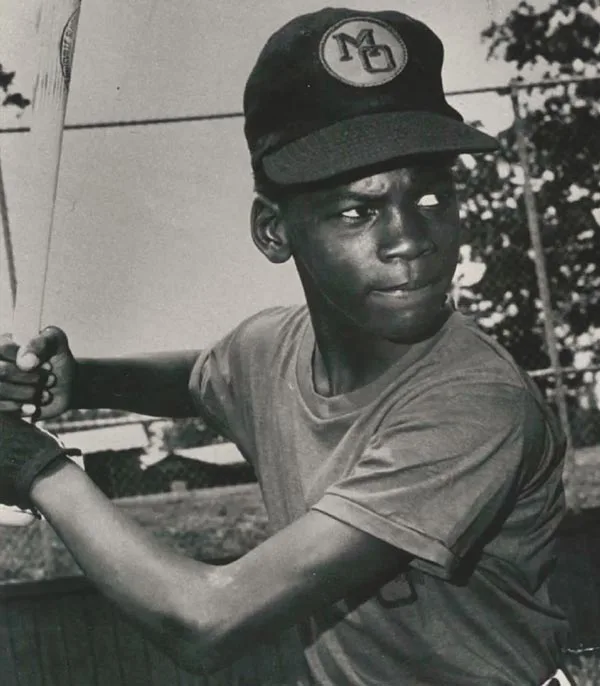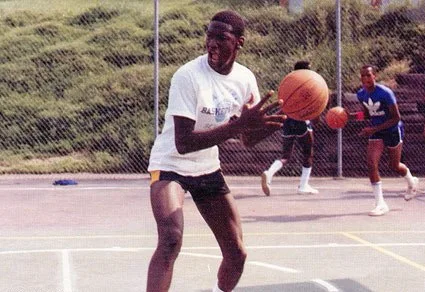
Michael Jordan’s Early Years: How Basketball Became His Destiny
Michael Jordan is one of the most iconic figures in basketball history. His path to fame was filled with challenges, relentless work, and an unwavering drive for excellence. But what made him the legend he became? His childhood, school competitions, and early steps in professional sports played a crucial role in shaping his future. In this article, we explore Jordan’s early years and how basketball became his destiny.
Childhood and Family Environment
Michael Jeffrey Jordan was born on February 17, 1963, in Brooklyn, New York. His parents, James and Deloris Jordan, were hardworking individuals who instilled discipline and perseverance in their children. His father worked in equipment maintenance, while his mother was a bank clerk. Thanks to their upbringing, Michael understood from an early age that success comes only through dedication and hard work.
When Michael was still a young boy, his family moved to Wilmington, North Carolina, where he spent most of his childhood. Wilmington was a smaller town compared to New York, but it provided a structured environment where Jordan could focus on his interests. His parents encouraged all their children to stay active, with his father believing in the power of sports to shape character. As a result, Michael and his siblings spent much of their free time engaged in athletic activities.
From an early age, Michael was highly competitive, often challenging his siblings in various games. His older brother, Larry, was one of his toughest rivals, consistently pushing him to improve. Their backyard matches were intense, and Michael often found himself losing. However, instead of giving up, he used these losses as motivation to get better, a trait that would define his entire career.
First Sporting Interests
Initially, Michael showed an interest not only in basketball but also in baseball and American football. He was particularly talented in baseball, and for a time, his father believed he would pursue a professional career in the sport. His strong batting skills and quick reflexes made him a valuable player, and he enjoyed the challenge of the game.
Despite his skills in baseball, basketball was the sport that truly captivated him. He spent hours practicing dribbling, shooting, and footwork, often staying on the court long after his friends had gone home. He idolized professional players and watched their games closely, analyzing their movements and strategies. This early dedication allowed him to develop a deep understanding of the sport even before he formally joined a team.
Another key aspect of his development was his natural athleticism. Even as a child, he had an incredible ability to move quickly and react instinctively. While he wasn’t the tallest player at the time, he compensated with agility, speed, and an intense drive to improve. His family noticed his growing passion for basketball, and his father set up a hoop in the backyard, allowing him to practice whenever he wanted.
High School Years and Early Challenges
Michael’s teenage years presented significant challenges. In ninth grade, he failed to make the varsity basketball team at Laney High School, which was a major disappointment. He returned home devastated, feeling as though he had let himself down. Many players might have accepted this as a sign to move on, but Jordan took it as a personal challenge.
Instead of dwelling on the rejection, he turned it into motivation. He spent the entire offseason working tirelessly on his game. He would wake up early to run drills before school, then stay late at the gym, perfecting his shooting and ball-handling skills. His work ethic became legendary among his peers, as he seemed to have an almost obsessive focus on improvement.
Despite his efforts, he still had a major obstacle to overcome—his height. At the time, he was relatively short compared to other players, which made it difficult for him to compete physically. This was a major reason why he had initially been cut from the team, and he knew that without a growth spurt, he would have to rely on skill and strategy to succeed.
Growth and Physical Development
One of the biggest turning points in Jordan’s high school career was his sudden growth spurt. Over the summer, he grew nearly four inches, which significantly improved his ability to compete with taller players. This newfound height, combined with his already exceptional athleticism, made him a much more formidable player.
With his increased height came a boost in confidence. He returned to tryouts the following year as a completely different player—faster, stronger, and more skilled. This time, he made the varsity team and quickly established himself as one of the most valuable players. His scoring ability, defensive tenacity, and leadership qualities set him apart.
By the time he reached his senior year, he was dominating games, earning state-wide recognition. College scouts took notice, and it became clear that he had a future in the sport beyond high school. His relentless work ethic had transformed him from a player who had been cut from the team into a star prospect.

College and the Path to Professional Basketball
In 1981, Jordan enrolled at the University of North Carolina at Chapel Hill, where he joined the legendary team coached by Dean Smith. His freshman year was a crucial period of adjustment, as he had to adapt to the faster pace and higher skill level of college basketball. However, his dedication and natural talent allowed him to quickly find his place.
During his first season, Jordan made an immediate impact. He earned the trust of his coaches and teammates, proving that he could perform under pressure. His ability to remain calm in high-stakes situations became one of his defining traits, something that would serve him well throughout his career.
The defining moment of his college career came in the 1982 NCAA Championship game when he made the game-winning shot, securing victory for his team. This moment put him on the national radar and cemented his reputation as a clutch performer. From that point on, he was seen as one of the most promising players in college basketball.
Influence of Mentors
Coach Dean Smith played a crucial role in shaping Jordan as a player. He emphasized fundamentals, discipline, and teamwork—values that would become hallmarks of Jordan’s playing style. Smith was known for his structured coaching approach, and Jordan thrived under his guidance.
Beyond skills and tactics, Smith also helped Jordan develop mental toughness. He taught him how to handle pressure, remain focused, and think strategically during games. This ability to stay composed under challenging circumstances became one of Jordan’s greatest strengths in the NBA.
Michael Jordan’s early years demonstrate that even the greatest champions start their journey with challenges and setbacks. His story is a testament to perseverance, hard work, and self-belief—an inspiration to millions worldwide.
